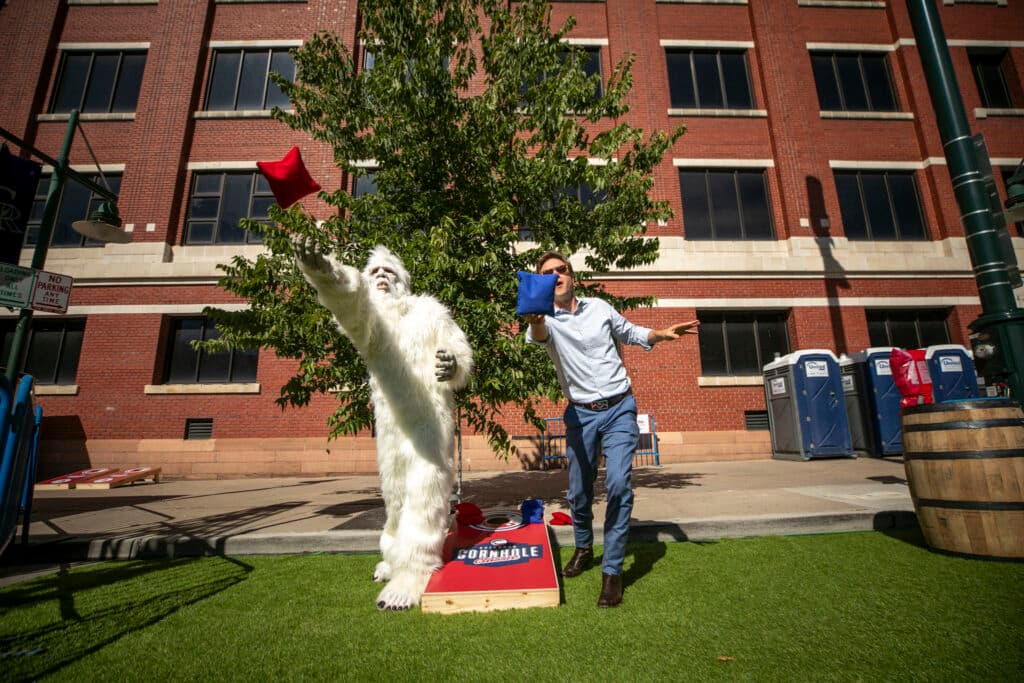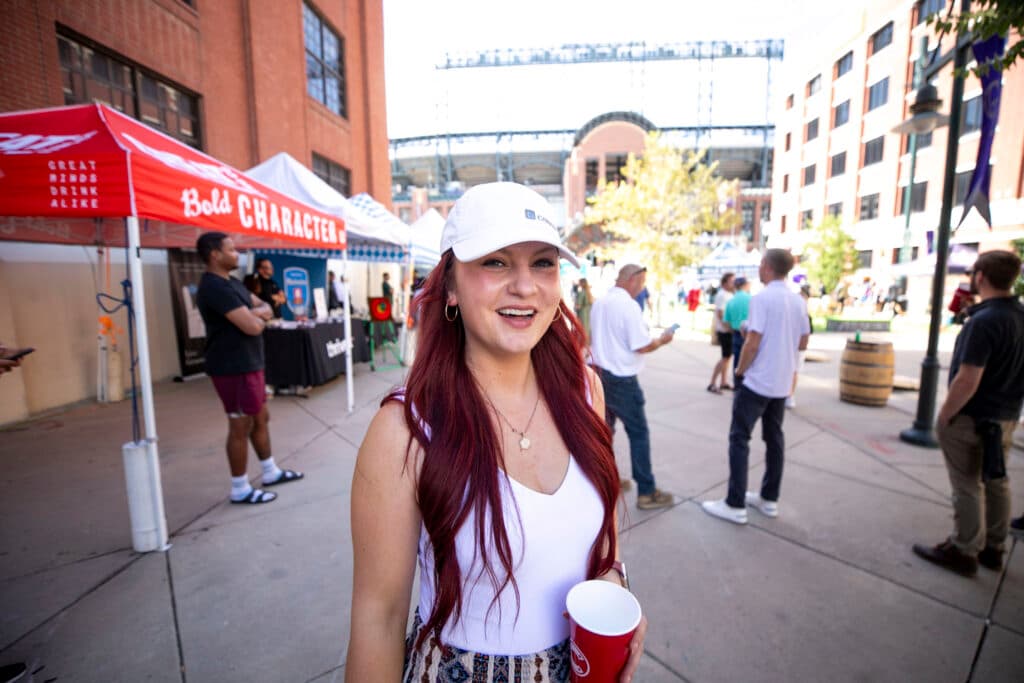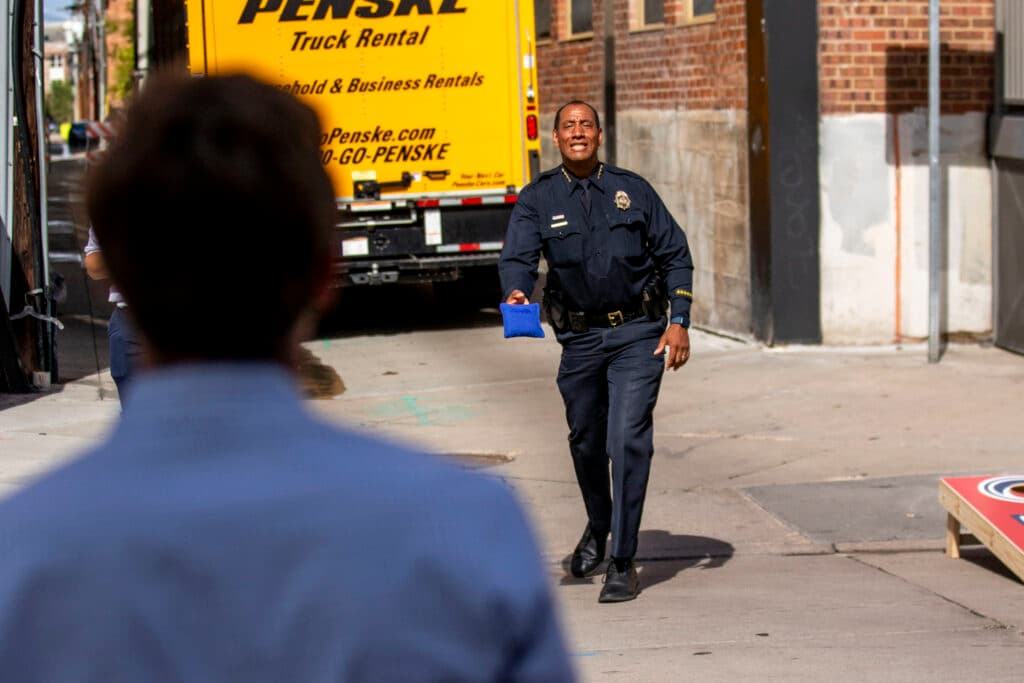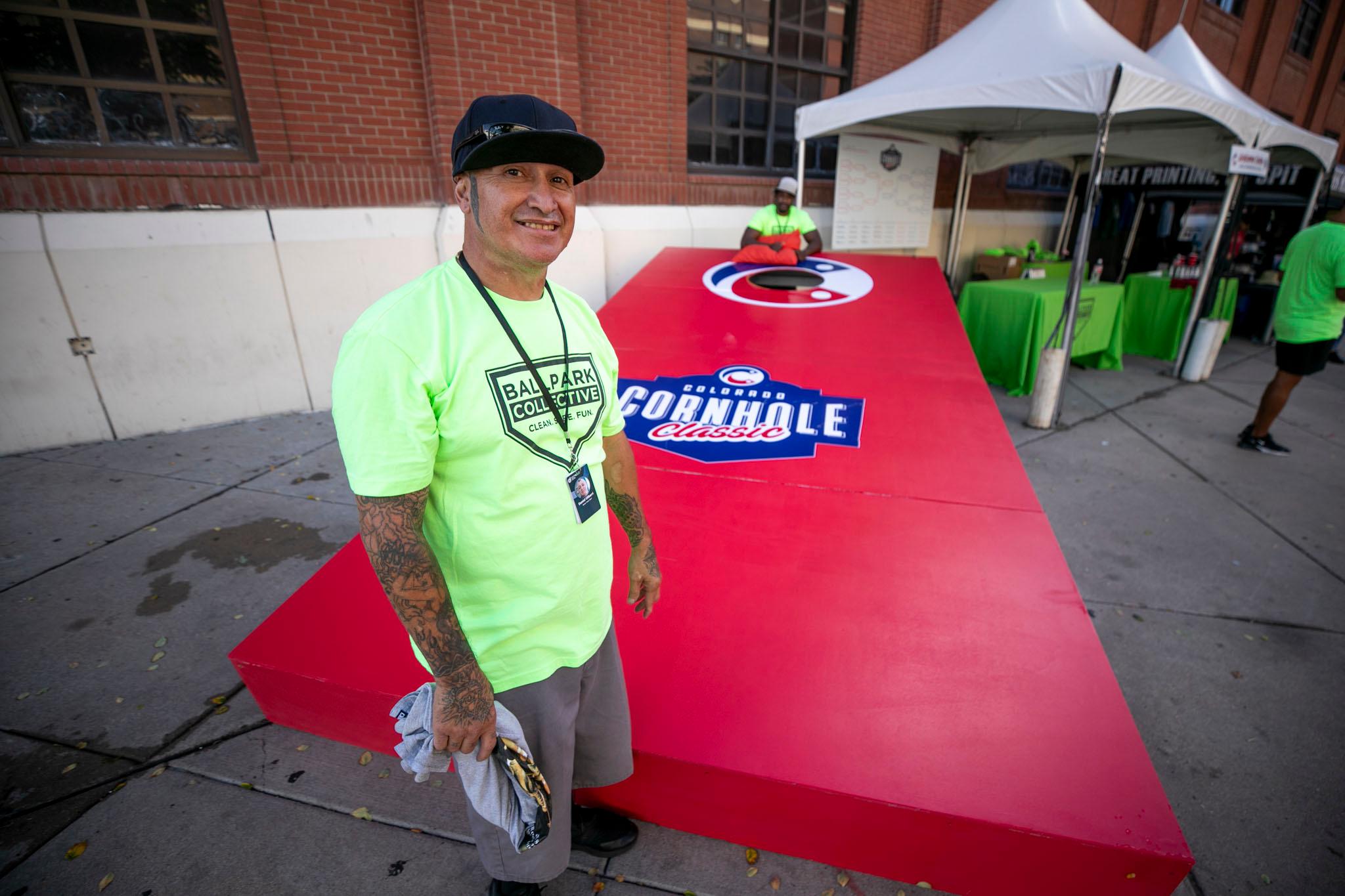Under the shadow of Coors Field, Daniel Ulibarri, a 54-year-old with a teardrop tattoo, watches Denverites perfect their beanbag tossing skills.
He’s working security for the Ballpark Collective’s Cornhole Classic, a weekend-long tournament in August. The registered neighborhood organization throwing the event has one big goal: Reenergize the Downtown Denver Ballpark District with family-friendly fun.
The area’s reputation has been battered by headlines about shootings, failing businesses and homelessness, even after the city shuttered encampments and tried to market a comeback with upbeat events like this.
Ulibarri watches Mayor Mike Johnston and his posse compete against Councilmember Darrell Watson. Johnston eyes his competition and discovers a secret: Pro cornholers put a spin on the bag. Mascots Dinger and Yeti, Denver cops and firefighters, even city boosters join the mayor in taking aim at the hole.

Meredith Kaiser, an account manager for a commercial real estate developer, waits for her company team’s turn to play.
She chats with her friend from Thornton about how, after eight years, she’s ready to get out of town.
Kaiser says she’s sick of paying $12 for two small pieces of chicken on a toothpick branded as happy hour ”kebobs.” Food costs are up, she says, while quality is down. Housing is too expensive, too.
She’s looking to move to Chicago. But first, she’ll toss the beanbags.

One spectator at the tournament is a former educator who quit her job running a restorative justice program in a school.
The pay wasn’t high enough to cover daycare expenses. She talks about the challenges of raising three kids on one paycheck.
To make ends meet, her family is cutting vacations, streaming services and restaurants to pay for their City Park home. While she’d like to invest more into retirement, she can’t prioritize that above her family’s current needs. Grocery costs are high. So are sports and other activities for the kids.
As she speaks to Denverite, she wrangles her three children while her husband competes in the cornhole tournament. When he’s not tossing beanbags, her husband works as an accountant at a business in the Denver Tech Center.
How much does he make?
“$500,000.”
Can we report that number?
“Not with my name,” she says.
Meanwhile, Ulibarri lives with his 84-year-old father in his childhood home.
He survives paycheck to paycheck, earning money as an outreach worker for people experiencing homelessness at the nonprofit Dream Center.
And he’s as happy as anybody to be outside, enjoying the fun, earning a little extra money and keeping things safe on this bright August day.
As Ulibarri sees it, Downtown Denver looks way better than it did when he was young.
He moved to Denver in 1977, when he was around 11. Soon he started skateboarding.
As a teen, he and his friends, who lived on the West Side, called Larimer Street “Skid Row.” Coors Field wasn’t there. Many buildings were vacant, full of runaways and punks, he says.
“We'd have some friends that would be squatting in these little places,” Ulibarri said. “And we'd come and hang out and smoke and drink or whatever we did — just juvenile delinquency.”
After his injury, Ulibarri’s life took a plunge. He surfed the West Side from couch to couch, often homeless but never on the streets.
Addiction beat him down, and he found himself in and out of prison. One stay lasted more than seven years.
Over those years, the downtown neighborhood became a baseball hub, one of the trendiest parts of town.
Two years ago, Ulibarri left prison.
He turned his life over to Jesus Christ, he says, moved home to care for his aging dad and found a job with the Dream Center.
He built a community bike shop, where he works in the afternoons. He’s passed out more than 100 bicycles to those who need them.
He spends his mornings walking the Ballpark District, connecting with people experiencing homelessness, keeping them from setting up tents, making sure they haven’t overdosed and died.
“A lot of people just walk by them and just don't say nothing to them,” Ulibarri says. “We see them. We see a person, a human being. God told us to love one another, and that's what we try to do.”
At the Downtown Denver tournament, Ulibarri sees Police Chief Ron Thomas and greets him warmly.
After the two chat, the chief stands back, watching the cornholers play.
He’s thinking about the rise in violent crime and how a young person he recently met said it’s easier to get a gun than a job.
Thomas worries young people can’t picture their future. Without dreams, they throw their lives away. And why not? They have no hope.

Thomas says he’s working with the schools and the city to help young people find a path forward.
His job, Thomas explains, consumes his days and nights.
But showing up to community events like this one is his favorite part — even if that work goes unpaid. He likes to meet people around the city and hear what they need.
Back in the day, Ulibarri might have fled the scene if the chief of police was around.
Two years sober and believing in God, he’s glad to be on the safe side of the law.
Just like the Ballpark neighborhood, Ulibarri says he’s changed. And Denver’s treating him well.
These days, he no longer fears cops.
“Now that we're doing right in our lives, and we're paying taxes, and we're living the right life, they're on our side,” he says. “It's not us versus them. They don't have to chase us no more. We don't have to hide from them no more.”














